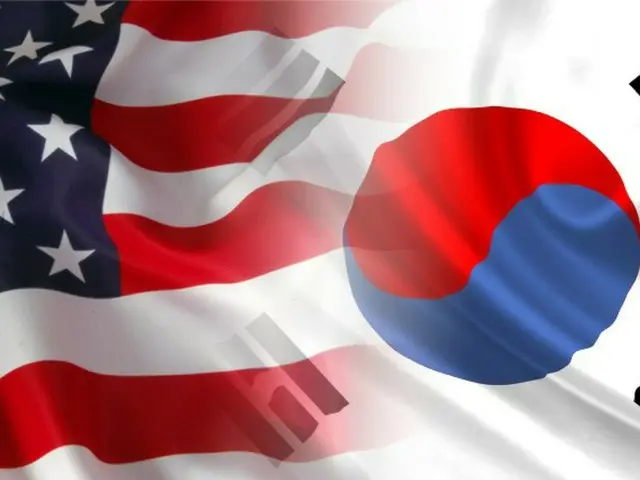The suspension of the president's powers has led to a lack of leadership, slowing the response and revealing the limitations of the acting president system.
The bill to indict Yoon was passed by the National Assembly and he was suspended from his duties in the same month. Choi Sang-mok, Deputy Prime Minister and Minister of Strategy and Finance, is currently serving as acting president.
With the inauguration of the US administration, each country has begun to build trust, and on the 7th of this month, Japanese Prime Minister Shigeru Ishiba attended a Japan-US summit meeting with Trump in Washington.
"Choi Sang-mok, Deputy Prime Minister and Minister of Strategy and Finance, who acts on behalf of President Yoon, has not even held a phone call with Trump, and there is a widespread view that a face-to-face meeting is virtually impossible," he said.
South Korea was plunged into political turmoil after Yoon declared "emergency martial law" in December last year. Emergency martial law is a type of martial law stipulated in the South Korean Constitution, and is used to declare war on the military in times of war or other emergency situations.
The President issues martial law when necessary or to maintain public order. The military takes control of administrative and judicial functions and is authorized to restrict freedom of speech, press, and association.
This was the first time since democratization in 1987. Following the issuance of the order, armed soldiers of the martial law forces broke the windows and stormed into the National Assembly building. In a scene reminiscent of the military regime, many protesters gathered in front of the National Assembly.
Citizens gathered, shouting slogans against martial law and surrounding military vehicles, causing chaos. However, martial law can only be lifted if a majority of members of parliament request it, and the president must comply.
Immediately after the declaration, a plenary session of the National Assembly was held, and all 190 members in attendance voted in favor of lifting the state of emergency. Yoon lifted the state of emergency after just six hours.
Opposition parties including the Democratic Party of Korea have said that Yoon "attempted to suspend the constitutional order and seize power permanently."
" The House of Representatives submitted a motion to impeach Yoon to the National Assembly, pointing out violations of the Constitution, such as "the Constitution's violations of the Constitution. The motion was passed with 204 votes in favor and 85 votes against. As a result, Yoon's powers as president are suspended.
Choi is currently acting as president. Choi is 61 years old and a former member of Seoul City. He graduated from the law department of Seoul National University and received his PhD in economics from Cornell University in the United States. He is the current head of the Ministry of Strategy and Finance.
He served as the Chief Secretary for Economy and Economic Affairs in the Presidential Secretariat for the Economy and First Vice Minister of the Ministry of Strategy and Finance in the Park Geun-hye administration.
After the administration was inaugurated, he was appointed as the first Chief Secretary for Economic Affairs. The Korean newspaper Dong-A Ilbo described Choi as "a traditional economic and financial expert who also works at the presidential office" when he was inaugurated as acting president.
"He has experience in a variety of positions, and is considered to have political judgment skills. However, some say he has limitations as a former member of the economic bureaucracy, which aims for stability."
While Choi, acting president, was busy ensuring national security and the daily lives of the people in the absence of the president, the second Trump administration was held in the United States on the 20th of last month.
The Rump administration was inaugurated. Trump has proposed a high tariff policy, announcing that he will impose a 25% tariff on steel and aluminum products imported into the United States. Countries including Japan have been in a state of disarray with the United States.
In response to this situation, Choi said at a government meeting on the 4th of this month, "If the U.S. tariffs and other countries' countermeasures continue, economic uncertainty will increase.
"We will take all measures to minimize the negative impact," he said, expressing concern about the impact on the Korean economy.
In Munich, Germany, he met with US Secretary of State Rubio and discussed the US-ROK alliance, the North Korean nuclear issue, Japan-US-ROK cooperation, and economic policy.
"The immediate task is to respond to the new high tariffs imposed by the United States, but we can also expect pressure to intensify in the areas of national defense and security," Yonhap said.
Regarding the North Korea issue, "Although Trump reaffirmed the importance of the complete denuclearization of North Korea and the cooperation between Korea, the United States and Japan at the Japan-U.S. summit, the formulation of the North Korea policy of the second Trump administration and future
"It remains an important issue to ensure that South Korea's position is reflected in the U.S.-North Korea dialogue, which may take place in the future," he said, expressing concern that South Korea could be left behind.
Meanwhile, according to Yonhap, a Foreign Ministry official said, "Even under the current acting powers system, the ROK-US alliance will remain strong and unshakable.
"Communication between South Korea and the US is also proceeding smoothly."
2025/02/20 10:52 KST
Copyrights(C)wowkorea.jp 2

